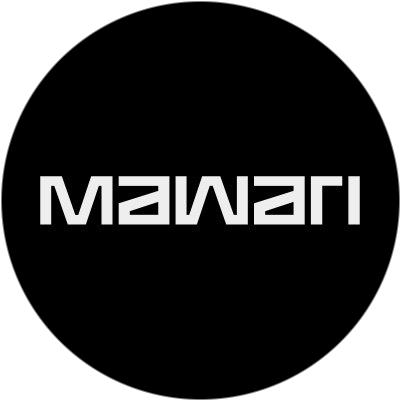
Mawari
Mawari is a technology company focused on building infrastructure for the 3D internet and spatial computing. It primary work is in developing a decentralized network to power the real-time streaming of immersive, AI-driven 3D experiences with near-zero latency.
The core of Mawari's offering is its Decentralized Content Delivery Network (CDN), a globally distributed network of GPU-powered nodes. This network, combined with Mawari's patented 3D streaming codec and a spatial rendering and streaming SDK, allows for the efficient cloud rendering and delivery of complex 3D content to a wide range of devices, including smartphones and XR glasses. This technology is designed to break the bottlenecks of traditional infrastructure, making high-quality, interactive AR and VR experiences scalable and accessible. The network is built on a Decentralized Physical Infrastructure Network (DePIN) model, which incentivizes individuals to contribute their unused compute resources.
As a participant in the Hedera ecosystem, Mawari is exploring how Hedera's fast, secure, and sustainable distributed ledger technology can be integrated into its decentralized infrastructure to enhance the security, transparency, and efficiency of its network, particularly as it expands its reach in the burgeoning spatial computing and 3D internet markets.
Project Information
Related Projects

NFT.com is a platform dedicated to the world of non-fungible tokens (NFTs), providing a comprehensive ecosystem for creators, collectors, and brands. The company, which is a subsidiary of Immutable Holdings, aims to be a central hub for the NFT community, offering a range of services designed to enhance the user experience and drive the adoption of digital collectibles.
The core of NFT.com's service is its marketplace and social platform. It allows users to create personalized NFT galleries to showcase their collections, which in turn form the foundation of a decentralized Web3 social network. The platform provides tools for minting new NFTs, as well as for buying, selling, and trading them. A key feature is the "Genesis Key," an NFT that provides holders with a lifetime, fee-free membership to the platform and the ability to create a custom profile.
NFT.com is built on Hedera with multi-chain functionality baked in. By building on Hedera, NFT.com can leverage the network's high throughput, low fees, and carbon-negative infrastructure to provide a fast, efficient, and sustainable experience for its users.

Coming soon..

DCX Group is a global B2B technology provider specializing in the tokenization of tangible, real-world assets. Its services serve as an on-ramp for traditional industries transitioning to the Web3 economy. The company is focused on bridging traditional finance (TradFi) with decentralized finance (DeFi) by transforming illiquid assets into regulated, tradable digital tokens or security token offerings (STOs).
DCX offers a comprehensive platform and services for tokenization including structuring and primary issuance of security tokens, facilitating secondary market trading through the DCX OTC and exchange solutions, and providing ongoing asset management tools. It emphasizes a regulation-forward approach, ensuring compliance with existing securities laws to build trust and security in the digital asset space.
The firm targets a diverse range of asset classes, including natural resources such as metals and mining, infrastructure projects with a focus on renewable energy, real estate, private equity, debt, and art and collectibles. A notable offering is “DCX Bullion,” which provides tokenized access to precious metals. By tokenizing these assets, DCX offers significant benefits such as increased liquidity, enhanced transparency via blockchain technology, fractional ownership opportunities for a broader investor base, and improved transactional efficiency. assets.

Stader Labs is a multi-chain liquid staking platform that provides a secure and efficient way to earn staking rewards while maintaining asset liquidity. It was launched in 2021 and has since extended its services across several major blockchain networks, including Hedera where it offers a liquid staking solution centered around the HBARX token.
When users stake HBAR tokens through Stader's platform, they receive HBARX, a liquid token representing their staked HBAR. This mechanism allows HBAR holders to continue participating in the DeFi ecosystem with HBARX, engaging with protocols including SaucerSwap and HeliSwap for additional yield opportunities, while still accruing staking rewards. The HBARX token is designed to increase in value relative to HBAR as staking rewards accumulate in the pool, with an auto-compounding feature managed at the smart contract level.
Stader Labs emphasizes security, subjecting its smart contracts to multiple third-party audits from firms such as Halborn, Peckshield, and Sigma Prime. The platform's architecture on Hedera aims to contribute to network decentralization by distributing staked HBAR across various nodes.
